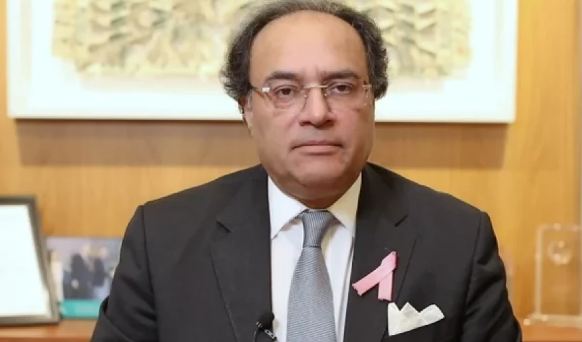Pakistan Plans To Discuss Loan Extension Program With IMF
The following is a summary of the remarks made by Finance Minister, Muhammad Aurangzeb, during his speech at the Atlantic Council in Washington. Aurangzeb shared that the Pakistani government plans to discuss the loan extension program with the International Monetary Fund (IMF). However, before that, it is important to collect taxes from sectors that are not included in the tax net and implement the privatization agenda. Aurangzeb said that structural reforms will take two to three years to complete. He added that Pakistan’s inflation rate has come down from 38 percent to around 20 percent, and the overall Gross Domestic Product (GDP) is growing positively.
The agriculture GDP grew by 5%, and the services sector is on the path to improvement. The exchange rate is stable, and the government plans to push forward with the reform agenda. Aurangzeb emphasized that the private sector’s experience would be used for economic stability. Tax to GDP is currently insufficient at 10% and needs to be increased to 15%.
Investment to GDP must also be increased to 15%. The government aims to increase exports, bring the circular debt in order, and implement the privatization agenda, which was agreed upon with the IMF by his predecessors. Digitization is necessary for transparency in the tax system, and it is also necessary to collect taxes from sectors that were not included in the tax net earlier. To bring more people into the tax net, Aurangzeb highlighted that expenditure needs to be reduced.
He remarked that talks with IMF officials on his arrival in Pakistan were constructive, and the economic situation has improved this year. Pakistan has completed the IMF program, and positive discussions have been held with the IMF officials. Steps are being taken to increase tax collection, and reforms are being brought in the Federal Bureau of Revenue (FBR). Aurangzeb believes that public-private projects can bring economic stability. He also said that the one-window operation needs to be restored, the process of consultation with all stakeholders is ongoing, and the cooperation of international organizations is indispensable for comprehensive development. Finally, the government aims to create a favorable environment for domestic and foreign investors.


Comments are closed, but trackbacks and pingbacks are open.